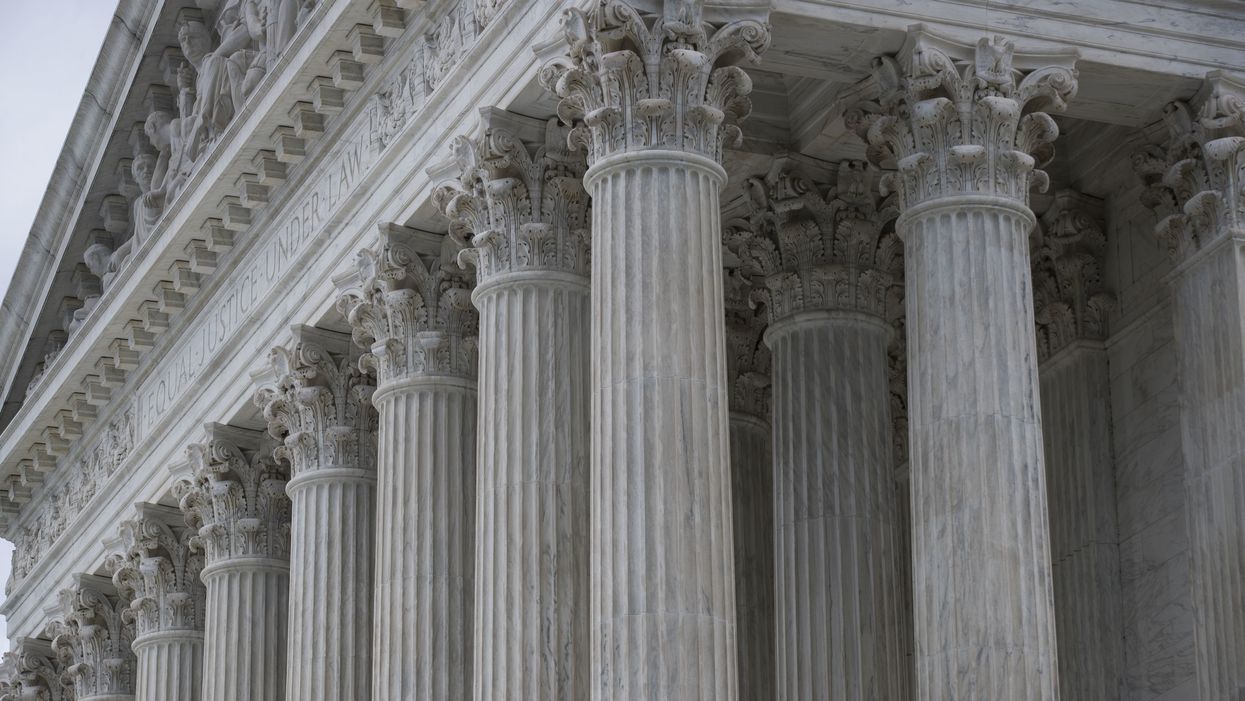
Sarah Silbiger/Bloomberg via Getty Images

This inmate who had six trials was convicted of killing four people in 1996
The Supreme Court on Friday overturned the conviction of an inmate who has spent more than two decades on death row, arguing that the prosecutor in his case showed racial bias.
Curtis Flowers, who is black, was convicted of murdering four people in Mississippi in 1996 and sentenced to death.
He had six separate trials, and faced the same lead prosecutor in each one. He was convicted in the sixth trial, but the others were thrown out. The results of the first two trials were thrown out on the basis of "prosecutorial misconduct," as were the results of the third after accusations that the prosecutor "discriminated against black prospective jurors." The next fourth and fifth trials ended in hung juries.
On its sixth attempt, the state of Mississippi convicted Flowers and sentenced him to death.
Lawyers for Flowers argued that the lead prosecutor, who was white, had shown racial bias by dismissing any black potential jurors on his case.
For the first and second trials, the prosecution got rid of five black potential jurors. For the third, 15 out of 16; for the fourth, 11 out of 16; and for the sixth, five out of six black potential jurors. For some reason, the Supreme Court had "no available racial information about the prospective jurors" on the fifth trial. In the third and fourth trials, the prosecution objected only to black potential jurors.
The Supreme Court ruled 7-2 on Friday to overturn Flowers' death sentence.
Justice Brett Kavanaugh delivered the opinion of the court, backed by John Roberts, Ruth Bader Ginsburg, Stephen Breyer, Samuel Alito, Sonia Sotomayor, and Elena Kagan. Only Justices Clarence Thomas and Neil Gorsuch dissented.
The court found that "the State's pattern of striking black prospective jurors persisted from Flowers' first trial through Flowers' sixth trial."
The justices specifically mentioned the case of potential juror Carolyn Wright, who was dismissed from the case because she worked at the same Walmart as Flowers' father, although "there was no evidence that they worked together or were close in any way." They said that Wright's dismissal in particular showed how the prosecution "engaged in disparate treatment of black and white prospective jurors."
Thomas and Gorsuch noted in their dissent that "[t]he Court today does not dispute that the evidence was sufficient to convict Flowers or that he was tried by an impartial jury."
The justices listed some of the evidence against Flowers that the jury had considered, including eyewitness accounts, gunshot residue on his hand, a bloody footprint that matched his shoes, and the fact that the bullets involved in the four murders were a match for a pistol stolen from Flowers' uncle.
The two dissenting justices also argued that the prosecution had a valid reason for removing each of the potential black jurors. One of these jurors, they said, "was related to Flowers and lied about her opinion of the death penalty to try to get out of jury duty," another "said that because she worked with two of Flowers' family members, she might favor him and would not consider only the evidence presented."
Thomas wrote, "Flowers presented no evidence whatsoever of purposeful race discrimination by the State in selecting the jury during the trial below."
It is now up to the state of Mississippi to decide whether or not to try Flowers a seventh time for the murders.